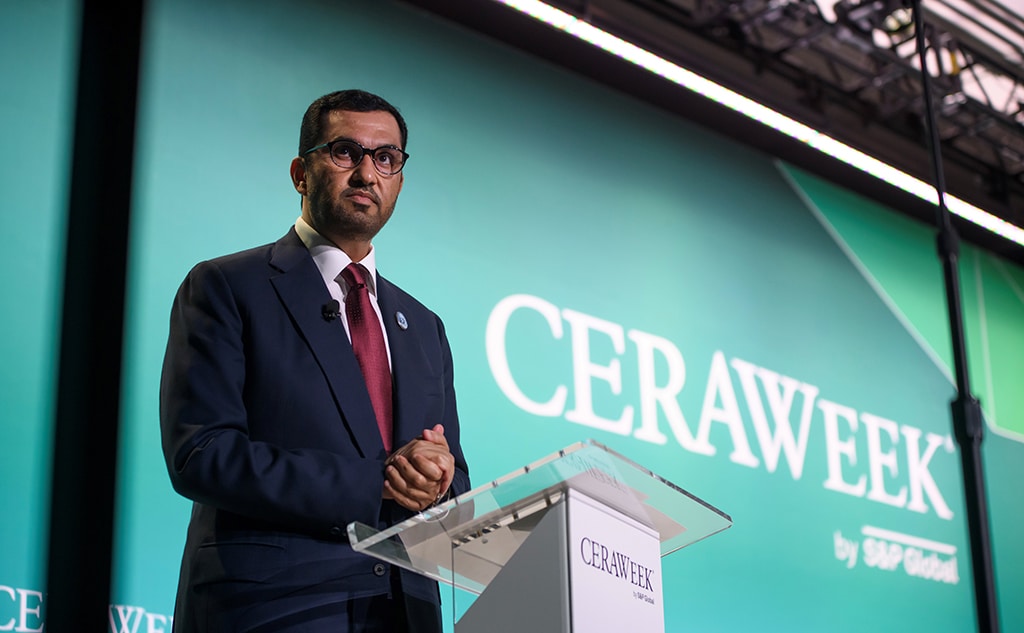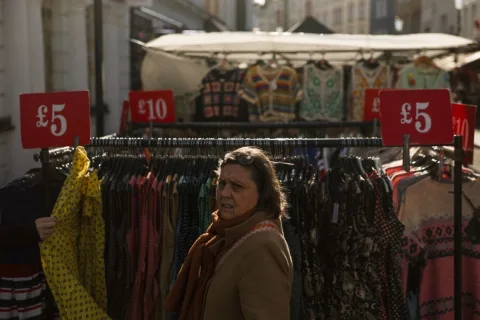HOUSTON: Sultan Al-Jaber, the president of this year's UN climate talks, on Monday said the oil and gas industry must lead the fight against climate change. Al -Jaber is minister of industry for the United Arab Emirates and is also chief executive of the UAE's Abu Dhabi National Oil Company. Climate activists have criticized the decision to hold COP28 in the UAE, a major oil producer, and also the choice of Al-Jaber as the meeting's president.
"No one can be on the sidelines and this industry in particular, is integral to developing the solutions," Al-Jaber told hundreds of oil and gas executives at the CERAWeek conference in Houston, Texas. "In fact, this industry must take responsibility and lead the way," he added. The last UN climate talks, in Egypt in November, ended with a landmark deal to create a fund to cover the costs that developing countries face from climate-linked natural disasters.
But observers were left disappointed that little progress was made on reducing planet-heating carbon emissions from fossil fuels. Al-Jaber, who has taken part in more than 10 COP meetings, headed the UAE's delegation to the last UN climate summit in Egypt. It was by far the biggest delegation to attend the talks, and one of the largest in COP history. In Houston, he said the oil and gas industry must "rapidly decarbonize its own operations... and has a vital role to play in decarbonizing its customers."
"The science is clear. We need to get fully behind net zero," he said.
The oil and gas industry has been accused of delaying the climate and energy transition by working to preserve the extraction and consumption of fossil fuels. The UAE, one of the world's biggest oil producers, argues that crude remains indispensable to the global economy and is needed to finance the energy transition. The Gulf country is pushing the merits of carbon capture-removing carbon dioxide as fuel is burned, or from the air.
Oil production
The United States wants to see a hike in oil production, including from OPEC countries, said a senior State Department official Monday. "As world economies recover, we'll see more consumption. And therefore we'd like to see supply meet demand," said Jose Fernandez, the US Undersecretary of State for Economic Affairs, Energy and the Environment, on the sidelines of the CERAWeek energy conference, in Houston, Texas. "We would like to see more supply" of crude globally, including from OPEC+ -- the 13 members of the Organization of Petroleum Exporting Countries and 11 non-OPEC allied countries-Fernandez said.
OPEC+ decided in early October to cut production by two million barrels per day and has not changed its output level since. The price of a barrel of West Texas Intermediate (WTI), the benchmark US variety, is now worth about a third less than a year ago, in the early days of the Russian invasion of Ukraine.
But it is still more than 40 percent higher than during the same period in 2019, and up almost 30 percent compared to 2018. Between the beginning of September 2021 and the beginning of January 2023, the administration of President Joe Biden drew nearly 250 million barrels from the US strategic reserves, which was then sold on the US market to relieve skyrocketing gas prices.
The US president has regularly called in the last year for an increase in the OPEC+ output, but the cartel has not raised its quotas for six months. In February, the organization's crude production, as estimated by Reuters, was nearly two million barrels per day lower than in February 2019. OPEC forecasts a rise in demand of 2.32 million barrels per day in 2023 compared to last year. - AFP











